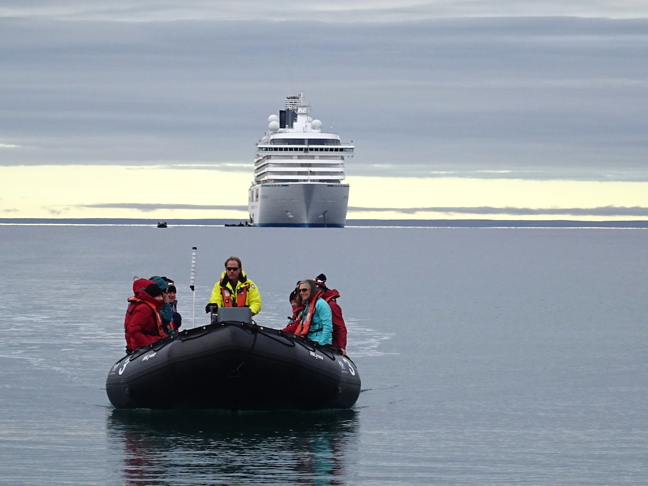Nunavut communities want safe shipping corridors, more surveillance
The voluntary corridors could help secure shipping safety, as well as protecting communities and wildlife.

Two more Nunavut communities say they support the creation of low-impact shipping corridors in Canada’s Arctic water to protect their lifestyle and wildlife.
For ship operators, the corridors wouldn’t be mandatory, but will provide sites for improved charting and investment in infrastructure and hopefully keep ships on safer paths.
In Cambridge Bay, at the western gateway to the Northwest Passage, community research participants say ships can carry a load of trouble: People on some ships bring alcohol, drugs and other contraband into the community, they say, likely in reference to a 2012 incident when an Australian yacht ended up being the subject of a police investigation under the Nunavut Liquor Act that resulted in police seizing 200 bottles of alcohol and $15,000 worth of illegal fireworks.
“With the July 2018 legalization of marijuana, this is of particular concern for youth,” they said, claiming that the security of people in Cambridge Bay is being violated by residents of other countries who pass through the Northwest Passage.
In fact, the Cambridge Bay research participants suggested stopping marine traffic from other countries from transiting the Northwest Passage without permission.
They also said they would to see more police presence on the water — and an RCMP boat that works.
These comments from Cambridge Bay are available in a report from the University of Ottawa’s Environment, Society and Policy Group, which has been looking at marine traffic in 12 Arctic communities for various partners in federal, territorial and local government agencies.
Most recently its team was in Salluit on Nunavik’s Hudson Strait
They have already produced reports on Arviat and Gjoa Haven.
In Cambridge Bay, research participants also said they would also like armed peace officers to accompany Canadian Coast Guard members on their missions and to increase Canadian Border Services regulation of pleasure craft.
They said yacht operators also make local purchases of items that are illegal to take out of Canada.
The research participants also said they were worried about scuba divers. Over the past few summers divers from the Norwegian group that ended up towing away Roald Amundsen’s boat, the Maud, this past summer, were often underwater.
“Scuba divers may take things from the ocean. No one is monitoring them after they get permits from Kitikmeot Inuit Association. The Maud is gone. Residents wonder what else may disappear,” one research participant said.
Ship traffic is disruptive, said residents consulted in Pond Inlet, the community that has experienced the largest increase in marine vessel activity in Nunavut in recent decades, for a study on these corridors.
“When disturbed or broken off by ships or icebreakers, ice moves faster than normal and ice behaviour becomes more unpredictable. This makes local ice knowledge less precise, and people may drown or be stranded on drifting ice as a result,” they said.
Those consulted, whose full remarks can also be seen online, said it doesn’t make any difference when shipping takes place, because “Inuit are marine people 365 days per year” and they always worry about the impact of shipping on narwhal and seals.
“If shipping affects marine mammals, Inuit cannot just walk 500 feet inland and have a different type of living. The lifestyle of Inuit would be heavily affected. Money cannot replace the loss of Inuit’s ability to travel and hunt,” said one respondent.
Of special concern is shipping activity in the spring, when hunters may see animals they wish to harvest, but will not be able to shoot because a ship is less than 1.6 kilometres away.
So they have wait for the ship to move, during which time the animal may move or leave the area. This may result in fewer successful hunts, making it difficult for them to access country food, they said.
After the break up, the problems also continue: hunters in boats cannot cross ship wakes safely, so have to wait for the waves to die down. Hunters worry about these wakes washing their small vessels away or pushing them into shore.
The issue of shipping corridors is not theoretical to people in Pond Inlet: The presence of the Baffinland Iron Mines Corp.‘s Mary River iron mine in north Baffin resulted in 142 passages of huge tankers in front of Pond Inlet during the summer of 2017.